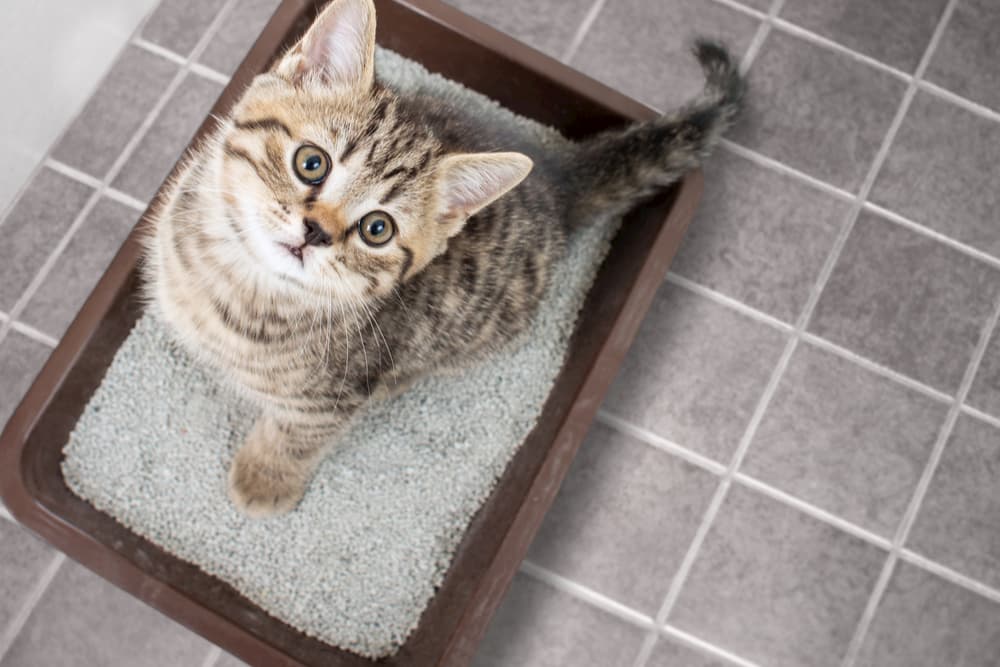Dangers of Flushing Cat Poop Down Your Toilet - Avoid Potential Issues
Dangers of Flushing Cat Poop Down Your Toilet - Avoid Potential Issues
Blog Article
The content listed below on the subject of Can You Flush Cat Poo or Litter Down the Toilet? is definitely insightful. Check it out for your own benefit and see what you think about it.

Introduction
As pet cat proprietors, it's vital to bear in mind exactly how we get rid of our feline buddies' waste. While it may seem convenient to purge pet cat poop down the bathroom, this practice can have detrimental effects for both the setting and human health and wellness.
Environmental Impact
Purging pet cat poop presents dangerous microorganisms and parasites right into the water system, positioning a significant threat to water ecosystems. These impurities can adversely impact marine life and concession water high quality.
Health Risks
Along with environmental problems, flushing pet cat waste can likewise pose wellness risks to human beings. Pet cat feces may contain Toxoplasma gondii, a bloodsucker that can cause toxoplasmosis-- a possibly severe ailment, especially for expectant ladies and people with damaged body immune systems.
Alternatives to Flushing
The good news is, there are safer and more responsible methods to deal with feline poop. Take into consideration the adhering to options:
1. Scoop and Dispose in Trash
The most common approach of disposing of feline poop is to scoop it into an eco-friendly bag and throw it in the trash. Make sure to utilize a specialized clutter inside story and take care of the waste promptly.
2. Use Biodegradable Litter
Opt for biodegradable cat clutter made from materials such as corn or wheat. These litters are environmentally friendly and can be safely dealt with in the garbage.
3. Hide in the Yard
If you have a yard, consider hiding pet cat waste in a marked location away from vegetable gardens and water sources. Be sure to dig deep enough to stop contamination of groundwater.
4. Mount a Pet Waste Disposal System
Buy an animal waste disposal system specifically made for pet cat waste. These systems make use of enzymes to break down the waste, minimizing odor and environmental impact.
Verdict
Liable family pet ownership prolongs beyond providing food and sanctuary-- it additionally includes proper waste management. By avoiding flushing cat poop down the commode and going with different disposal techniques, we can reduce our environmental impact and secure human health.
Why You Should Never Flush Cat Poop Down the Toilet
A rose by any other name might smell as sweet, but not all poop is created equal. Toilets, and our sewage systems, are designed for human excrement, not animal waste. It might seem like it couldn’t hurt to toss cat feces into the loo, but it’s not a good idea to flush cat poop in the toilet.
First and foremost, assuming your cat uses a litter box, any waste is going to have litter on it. And even the smallest amount of litter can wreak havoc on plumbing.
Over time, small amounts build up, filling up your septic system. Most litter sold today is clumping; it is made from a type of clay that hardens when it gets wet. Ever tried to scrape old clumps from the bottom of a litter box? You know just how cement-hard it can get!
Now imagine just a small clump of that stuck in your pipes. A simple de-clogger like Drano isn’t going to cut it. And that means it’s going to cost you big time to fix it.
Parasitic Contamination
Believe it or not, your healthy kitty may be harboring a nasty parasite. Only cats excrete Toxoplasma in their feces. Yet it rarely causes serious health issues in the cats that are infected. Most people will be fine too if infected. Only pregnant women and people with compromised immune systems are at risk. (If you’ve ever heard how women who are expecting are excused from litter cleaning duty, Toxoplasma is why.)
But other animals may have a problem if infected with the parasite. And human water treatment systems aren’t designed to handle it. As a result, the systems don’t remove the parasite before discharging wastewater into local waterways. Fish, shellfish, and other marine life — otters in particular — are susceptible to toxoplasma. If exposed, most will end up with brain damage and many will die.
Depending on the species of fish, they may end up on someone’s fish hook and, ultimately on someone’s dinner plate. If that someone has a chronic illness, they’re at risk.
Skip the Toilet Training
We know there are folks out there who like to toilet train their cats. And we give them props, it takes a lot of work. But thanks to the toxoplasma, it’s not a good idea.

Hopefully you liked our article on How to Dispose of Cat Poop and Litter Without Plastic Bags. Thank you so much for finding the time to browse our piece. Do you know another person who is in the market for the subject? Take a moment to promote it. Thanks so much for your time invested reading it.
Call Today Report this page